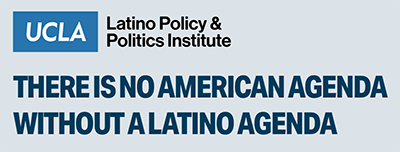15 Facts about Latino Well-Being in Washington
UCLA Latino Policy and Politics Institute
Mar 22, 2024
This data brief, produced by the UCLA Latino Policy and Politics Institute research team, provides detailed information on Washington’s Latino population using the 2015-19 American Community Survey data.
1. Latinos are the second largest racial or ethnic group in Washington at 13% of the population (Figure 1). This is 5 percentage points less than the national share of Latinos (18%). Since 2000, the Latino population has grown by 133%—more than four times the state’s overall growth rate during the same time (30%).
2. Latinos in Washington are younger than the average Washingtonian. The median age of Latino Washingtonians is 25, compared to 37 for Washingtonians overall. Additionally, 23% of Latinos in Washington are 10 or under, compared to 14% of the overall state population.
3. More than three-quarters of Latinos in Washington are of Mexican descent (80%)—18 percentage points more than the national average (62%). Latinos of other descent (6%), Puerto Ricans (4%), South Americans (3%), and Salvadorans (2%) close out the top five Latino descent groups in Washington. The substantial proportion of Latinos of other descent may reflect Washington’s historical development. Latinos have had a permanent presence in the state since the early 1800s when Mexico’s border extended to Oregon, while Mexican migration intensified in the 1920s during the Mexican Revolution.
4. Washington Latinos are less likely to complete high school compared to the state overall and Latinos nationally. About 34% of Latinos did not complete high school, compared to 9% of the state overall and 30% of U.S. Latinos. In Washington, Latinos of Guatemalan and Mexican descent are the most likely to lack a high school diploma (46% and 39%, respectively).
5. Latinas are more likely to have completed a bachelor’s degree than Latino men (Figure 2). An estimated 16% of Latinas have completed a four-year college degree, compared to just 13% of Latino men. However, both Latinas and Latino men are less likely to have completed college relative to Latinos nationally.
Read the full online article here.

